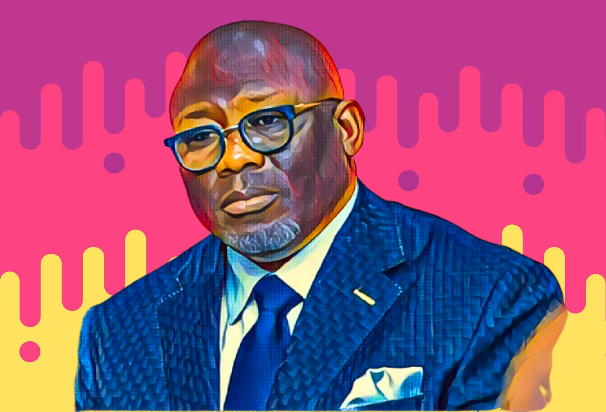KEY POINTS
- Tinubu economic policies impoverish Nigerians, says Delta governor, citing hardship and poverty.
- Inflation and subsidy removal have led to higher living costs for Nigerians.
- Critics call for reforms to protect vulnerable Nigerians from further hardship.
The Governor of Delta State, Sheriff Oborevwori, has criticized President Bola Tinubu’s economic policies, stating that they have led to increased poverty and hardship for Nigerians. Oborevwori’s remarks reflect growing discontent among state governors, civil society organizations, and ordinary citizens over the negative impact of recent economic reforms.
According to Vanguard, Governor Oborevwori made the statement during a public address in Delta State, where he highlighted the growing strain on Nigerians caused by rising inflation, higher living costs, and the removal of fuel subsidies. The governor argued that the new policies have disproportionately affected vulnerable groups, including low-income earners and pensioners.
The criticism comes at a time when Nigeria’s economy is grappling with multiple challenges, including rising inflation, soaring food prices, and skyrocketing transportation costs. Citizens and advocacy groups have called on the Federal Government of Nigeria to introduce economic palliatives to ease the financial burden on ordinary Nigerians.
Tinubu’s economic policies impoverish Nigerians, says Delta governor
The removal of Nigeria’s long-standing fuel subsidy is seen as one of the most impactful economic reforms introduced under President Tinubu’s administration. While the policy was aimed at reducing government spending and redirecting funds to development projects, it has had severe consequences on the cost of living. The price of fuel more than tripled, which led to a significant increase in transportation costs and the cost of essential goods and services.
Governor Oborevwori noted that the ripple effect of these changes is being felt in households across the country. Many families have seen their purchasing power decline as prices of basic necessities like food, transportation, and healthcare continue to rise. As fuel prices soar, it has become more expensive for businesses to transport goods, resulting in higher prices for end consumers.
Data from the National Bureau of Statistics (NBS) shows that Nigeria’s inflation rate hit a record high of 24.08% in July 2024, the highest in nearly two decades. The cost of food, in particular, has increased sharply, with the prices of staple items like rice, bread, and cooking oil rising beyond the reach of many Nigerians. Governor Oborevwori described the situation as “unsustainable” and called for urgent policy reforms to cushion the impact on citizens.
How Tinubu’s policies are driving poverty and economic hardship
The Delta governor’s critique highlights the worsening poverty levels in Nigeria since the introduction of Tinubu’s economic policies. The removal of the fuel subsidy, coupled with the unification of the naira exchange rate, has triggered significant hardship for millions of Nigerians. While the move was intended to stabilize Nigeria’s foreign exchange system, it resulted in the depreciation of the naira, driving up the prices of imported goods.
Experts from PwC Nigeria have noted that currency devaluation has had a profound impact on small businesses and manufacturers that rely on imported raw materials. This has not only increased production costs but also reduced Nigeria’s ability to compete with foreign-made goods. As businesses face higher operating costs, they are forced to lay off workers or increase product prices, further straining consumers.
Governor Oborevwori emphasized that while the government’s goal of economic reform is understandable, the implementation process has left citizens in a vulnerable position. He argued that a more balanced approach, including targeted support for vulnerable populations, would reduce the negative impact of the policies. Critics have called on President Tinubu to roll out economic palliatives, such as cash transfers and transportation subsidies, to provide relief to struggling Nigerians.
What critics are calling for to ease Nigeria’s economic burden
The outcry from Governor Oborevwori and other stakeholders has prompted renewed calls for the government to re-evaluate its economic policies. Advocacy groups, labor unions, and civil society organizations have proposed several measures to mitigate the hardship experienced by Nigerians.
One key demand is the introduction of targeted social palliatives. Advocacy groups like the Nigeria Labour Congress (NLC) have urged the federal government to provide cash transfers, subsidized public transportation, and food aid to vulnerable households. These measures are seen as essential for mitigating the impact of high inflation and fuel price increases.
Another recommendation is the creation of jobs and economic empowerment programs. Unemployment and underemployment remain significant issues in Nigeria, with millions of citizens unable to secure stable employment. By supporting job creation in sectors such as agriculture, technology, and manufacturing, the government could ease the financial strain on families.
Tax relief measures for small and medium-sized enterprises (SMEs) have also been proposed. Critics argue that if small businesses are given tax breaks, they will be better equipped to retain staff, reduce layoffs, and avoid sharp increases in the prices of essential goods.
Governor Oborevwori has also called on the Federal Government of Nigeria to prioritize the payment of pensions and gratuities for retirees. According to him, pensioners are among the hardest hit by the rising cost of living, as their fixed payments have not been adjusted to reflect the current inflation rate. Many pensioners are unable to afford essential healthcare services and medications due to the increased cost of living.
In response to the growing criticism, President Tinubu’s administration has promised to introduce cash transfers for vulnerable Nigerians as part of its “Renewed Hope” initiative. While the initiative has been welcomed, stakeholders insist that the government must act swiftly to provide relief for struggling citizens.



